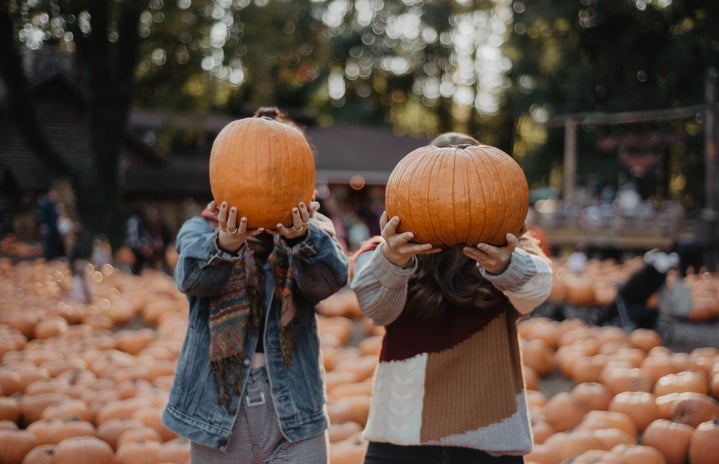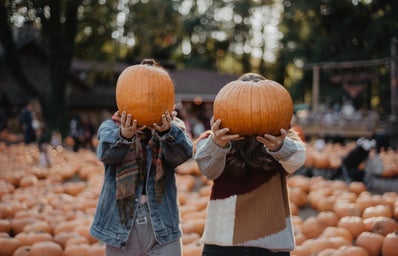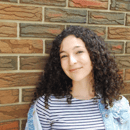From a young age, we have been immersed in history. We learn about what happened before we walked on this Earth, what caused these major alterations, and what we can do to prevent it from happening again.
A Humanist principle that I was taught in Early British Literature is as follows: Because we, as the human race, can recognize a change from what was to what is, it is safe to assume that we are continuously changing. We separate our ancestral past from our modern present simply because we acknowledge that there has been a change from the culture and values that existed in historical context compared to what exists now. This change is dependent on the fact that we are historical beings with the ability to change.
That being said, the major events in history are given more prominence than the minor daily ones. When looked at through the lens of literature and history, it becomes apparent that everything that we do in 2020 has already been done in past centuries. Our actions are but a carbon copy of the past; we imitate our predecessors.
Think about this: Every word in the English language has been said multiple times before it ever found its way into your mouth. Sentences that you have uttered have already been spoken by others, likely in the same tone and situation. Stories that have been written all follow the same seven archetypes and steal from one another. There seem to be no original ideas. This doesn’t just encompass the modern age, but the early modern age of 1400-1700 as well. The acclaimed thinkers, authors, and poets in Britain at this time, such as Chaucer and Sydney, were inspired by their Roman ancestors, Plato and Socrates. Consequently, authors that emerged after Chaucer and Sydney imitated their works in order to craft something new, but built on the foundation of something old. This goes back to the dawn of humanity.
Our beliefs and values are constructed through nurture and experience. These are things that we live through but are not defined by. Our self is something else entirely. But this suggests the question: If everything we do has already been done, if we imitate our ancestors, whether intentionally or unintentionally, what constitutes as the self? Just as change separates the past from the present, what separates our souls from our imitative thoughts? Do we have any original ideas at all?
The answer is quite simple: Who we are is defined not by our thoughts, but by what we do with them. We are the defining factor. Our self in this body we currently reside in has never before graced the Earth. So yes, everything we create has been inspired by something in the past, but despite having a foundation based on imitation, what makes our own ideas unique and original is that it came from us. It seems as if two factors are required to create: you and what you imitate.
In the modern age, we are constantly absorbing information. One of the most prominent social media platforms among teenagers right now is Tik Tok. This app is composed of one-minute videos, each packed with the rhetoric, thoughts, and beliefs, of other people. After scrolling through Tik Tok for an hour, you will be introduced to thousands of lives and opinions. Similar to the doctrines of the past, all that matters is what you do with what you see and learn.
But is imitation always a negative act? Of course not! In fact, it is essential to progress and change in the human project. Without the act of imitation, there wouldn’t be a distinct medieval era or modern era, for there would be no change at all. Imitation allows people to take what has already been mulled over and examined, and continue to further this concept. Humans are restricted by time, and once they die, their work stays behind, falling into the lap of a new scholar, just like you and I. Imitation is not stealing. By imitating another, you are 1) giving them a massive compliment by believing their work is worth further scrutiny, and 2) helping the human race morph and change for the better.
A modern day example is Tik Tok. This app is brimming with trends. One person will invent a dance and post it, welcoming other people to try out the dance for themselves. As long as they give credit where it is due, this isn’t a form of plagiarism, but an immersive, interactive experience meant to bring about joy to the world.
For Halloween, my family and I decided to partake in two spooky photography trends. This imitation resulted in a delightful time and produced artistic photos.
The first trend we participated in was the “Ghost Challenge.” We cut out two holes in white bedsheets and hung them over our heads, sometimes wearing glasses as a stylish accessory. My cousins and I went into the forest by my house with a camera in order to create an aesthetic atmosphere that coupled with our spooky, retro costumes.
The second trend was the “Pumpkinhead Challenge.” My zii’s threw the cousins an annual Halloween Party. Dressed by as pirates, scarecrows, skeletons, and even my own Nonno, we all carved spooky and comical faces into pumpkins! A few of us cut out the bottom of the pumpkin in preparation for this challenge. When the time came, we all went out into the street, plopped pumpkins on our heads, and had a photoshoot!
Since we were inspired by others who engaged in this challenge, we not only had a blast, but the pictures will definitely go down in history. Who knows, maybe someone along the line will supply their own take of these pictures! After all, that is the beauty of imitation.
Resources
ENGL 1003 with Dr. Stephen Pender


